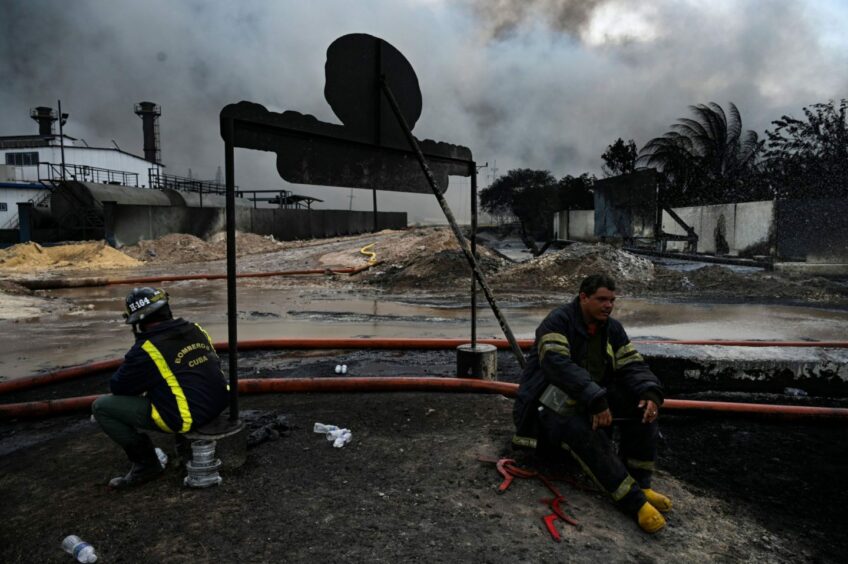
The four-day fire raging at a Cuban fuel depot is darkening the outlook for an economy already reeling from blackouts, shortages, Covid-19 and soaring import costs.
As of Tuesday, state-run media said four of the eight fuel storage tanks, each with a 300,000 barrel capacity, were ablaze. The fire was brought under control late Tuesday and images on state-run media showed small, simmering puffs of gray smoke with no visible flames. Cuba’s presidency said on Twitter the firefight was “in a more favorable moment.”
The blaze, which the government attributed to a lightning strike on Friday, has cast a black cloud over northern Cuba and paralyzed work at the Matanzas industrial complex, the country’s only transshipment point for crude and the only installation capable of receiving 100,000 ton tankers.
The disaster is likely to set back the economic recovery, aggravate the island’s electricity woes, and exacerbate fuel shortages. Before the fire, the UN Economic Commission for Latin America and the Caribbean forecast Cuban economic growth of 3.4% this year, as it recovered from contractions in 2019 and 2020.
The Matanzas complex – on Cuba’s northern coast about 56 miles east of Havana – is a key piece of the island’s energy backbone, receiving fuel from Venezuela and Europe and shipping it out to smaller terminals across the island. It also supplies fuel to some of the island’s thermoelectric generators.
In addition, it’s also the sole entry point for Cuba’s estimated 40,000 barrel per day domestic crude production, said Jorge Pinon, the director of the Latin America and Caribbean Energy Program at the University of Texas in Austin.
Matanzas’ critical port and dock installations do not appear to have been affected, he said. But with the fire still roaring, the true scope of the damage is unclear.
“Even the storage tanks that are not directly impacted, the heat could affect their metallurgy” and make them unusable, Pinon said. “It’s going to take a month or so before we know how bad the damage is.”
Ailing Grid
The fire is putting additional pressure on ailing energy grid. Cuba has been suffering blackouts for months, as aging power plants have gone down and fuel costs have soared. On Monday, a major power plant was taken off line because a water pumping station at Matanzas had been damaged.
Officials said they expected to bring it back on line soon, but even so, the country will only be able to supply about two-thirds of peak demand on Tuesday, the Ministry of Energy and Mines said.
Annual inflation on the communist island hit 29% in June, largely driven by the devaluing peso and rising costs of fuel and other imports. A slow revival in tourism, which slumped amid tight anti-Covid 19 measures, has provided some relief to the stricken economy.
Cuban, Mexican and Venezuelan firefighters have been trying to contain the blaze which has left at least one dead, 125 injured and more than a dozen missing.